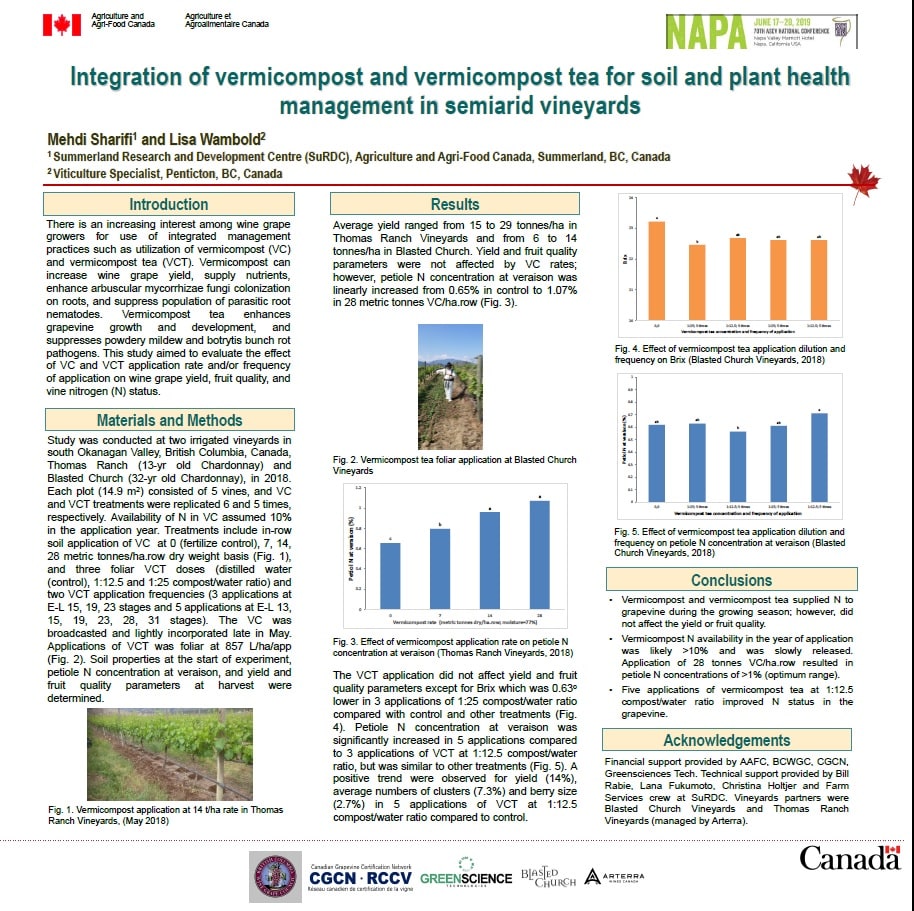Poster presented by Grape & Wine Science Cluster Primary Investigator Mehdi Sharifi at the 2019 American Society for Enology and Viticulture June 17-20th in Napa, California.
There is increasing interest among winegrape growers in use of vermicompost (VC) and vermicompost tea (VCT). VC has fewer pathogens and higher nutrient concentrations than traditional compost. Studies on use of VC in vineyards have reported that VC can increase grape yield, supply high amounts of nutrients, enhance arbuscular mycorrhizae fungi colonization, and suppress populations of parasitic nematodes. The suppression of powdery mildew and botrytis bunch rot pathogens of grapevine with different biology and epidemiology by VCT indicates the potential for its use as an integrated disease management strategy in vineyards. The recent detection and quantitation of cytokinins in VCT provided direct evidence to explain the growth efficacy of applying VCT to enhance plant growth and development. When soil-applied, VCT have been observed to stimulate health and growth of plants, particularly roots, and to enhance diversity and activity of soil microbial communities, including suppression of parasitic nematodes. Fungi isolated from VCT have shown to be effective for their phosphate-solubilizing potential and antagonistic activities. First year yield and yield quality results from VC and VCT trials on Chardonnay in the Okanagan Valley, BC, Canada will be presented. Interim data from the VC trial showed no significant effect on yield or yield quality parameters; however, petiole N at veraison increased significantly by 0.65, 0.80, 0.96, and 1.07% with VC application rates of 0 (fertilized control), 15, 30, and 45 tons fresh weight basis/ha row, respectively. Preliminary data showed increased yield (14%), average numbers of clusters (7.3%), and berry size (2.7%) with application of VCT (five applications at E-L growth stages of 15, 19, 23, 28, and 31; 1:25 compost to water ratio; 800 L/ha spray rate) compared with the control (distilled water).

